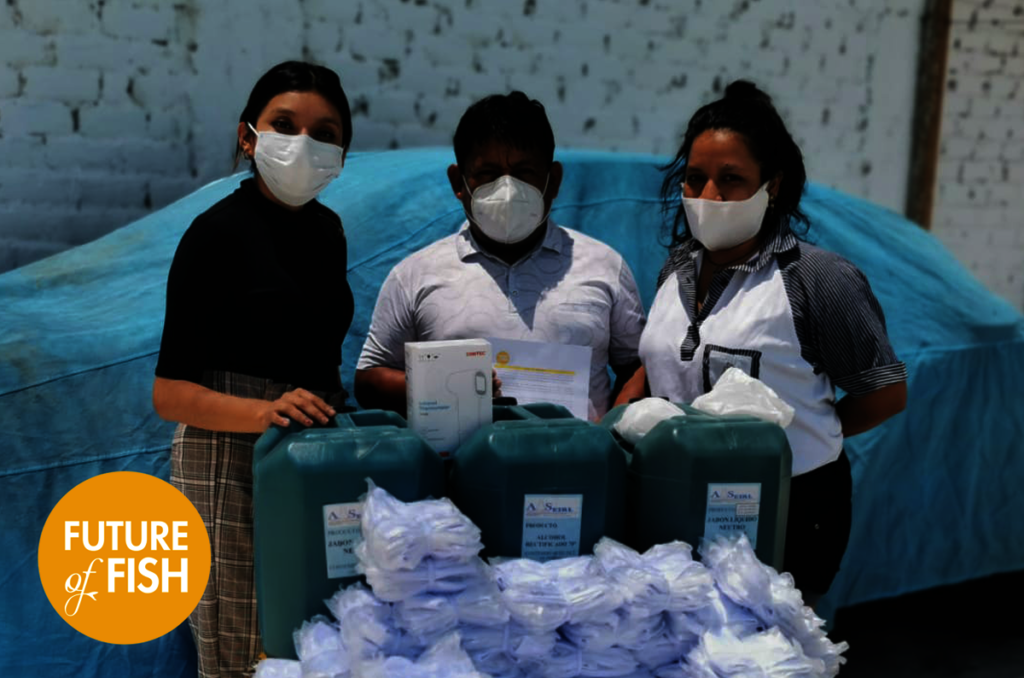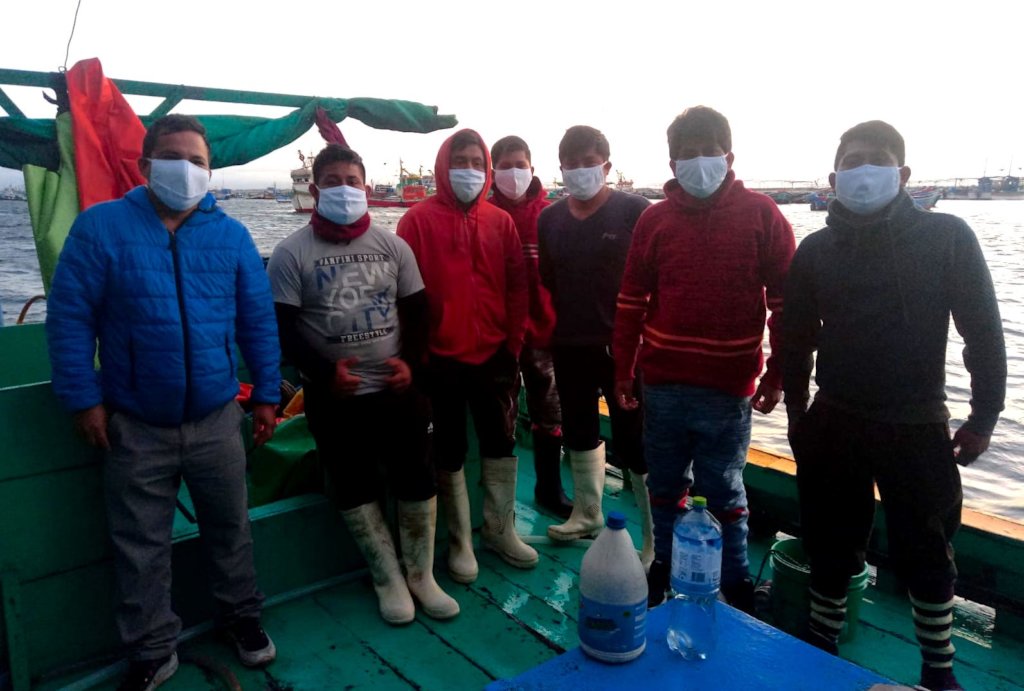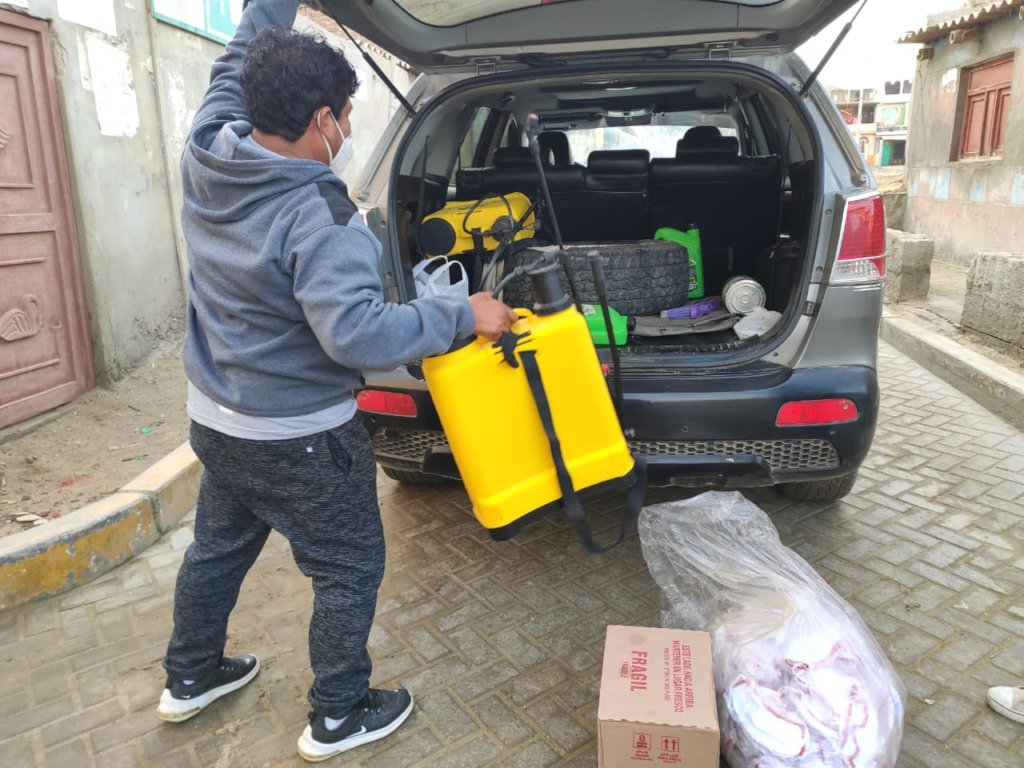By Julie Budkowski | Operations Director, Future of Fish
Back in June we launched PPE for Fisheries, a campaign to support fishers and seafood traders in Peru’s small fishing villages with the necessary protective gear and sanitation supplies to safely provide fish — a vital source of nutrition — to the Peruvian population. This project was developed in response to the crises of worker safety and food supply caused by Covid-19. Since then, we have been able to expand PPE for Fisheries from its initial connection with three villages to provide protective equipment, supporting over 7400 fishers at 8 villages up and down the coast.
What we’ve been doing
Our first deliveries of PPE went to fishers and fisher co-ops in Parichique, La Islilla, and La Tortuga. These communities all have high seas small scale fleets catching mahi or squid, and have faced the greatest market impact from Covid-19, because their product depends on international buyers. These villages also have fishers that work closer to land and provide seafood to their local community, so the protective equipment served a double benefit.
Since then, we’ve also delivered PPE to Yacila, Paita, El Ñuro, and Los Organos, and we’re working on sourcing equipment for women seafood workers in Quilca and El Ñuro. To date, we have supplied:
So far, the PPE and protective gear we have supplied has reflected what fishers and local leaders told us they needed to return safely to work. Now we’re extending our support beyond the fishers themselves, to include the people that work along the supply chain. Landing sites are the next major areas we have identified for support, as they are an important gathering point (and risk area) where women, kids, and buyers all intersect as they offload, coordinate, and pick up fish. Along with PPE, landing site workers need additional resources to help with worker safety, like thermometers and plastic tubs for handwashing and boot sanitation.
What’s next
As we expand our efforts beyond the initial crisis of PPE for fishers, we’ve been hearing from fishers, receivers, and community members about what more they need in order to work safely. PPE is a necessary first step, but protecting workers during a pandemic — and indeed any time — requires a wider toolkit of resources. Fishers have identified first-aid kits as a major need. Most boats in the small-scale fleets don’t have first aid kits on board as they’re relatively expensive, but they are a vital tool that can support fishers in case someone gets hurt or begins to have Covid symptoms while at sea, and to protect other fishers from infection.
From the beginning, we knew that fisher health in the time of Covid-19 was more complex than just providing access to PPE. Along with the expanded community needs for first aid kits on boats and protective gear for workers at other nodes in the supply chain, we’ve learned more about the chronic systemic health issues that some communities are dealing with: some communities lack medical infrastructure, don’t have full-time medical staff living locally, or access to preventative care.
These are complex problems that can’t be fixed overnight. We’ve begun conversations with allies and potential partners about these issues, and are looking at ways to support wider health needs in the area. As our work in Peru continues, we’re thinking about the ways we can engage with the wider healthcare system, because we know that healthy oceans, healthy fishers, and healthy communities are deeply intertwined.
Links:
Project reports on GlobalGiving are posted directly to globalgiving.org by Project Leaders as they are completed, generally every 3-4 months. To protect the integrity of these documents, GlobalGiving does not alter them; therefore you may find some language or formatting issues.
If you donate to this project or have donated to this project, you can receive an email when this project posts a report. You can also subscribe for reports without donating.




